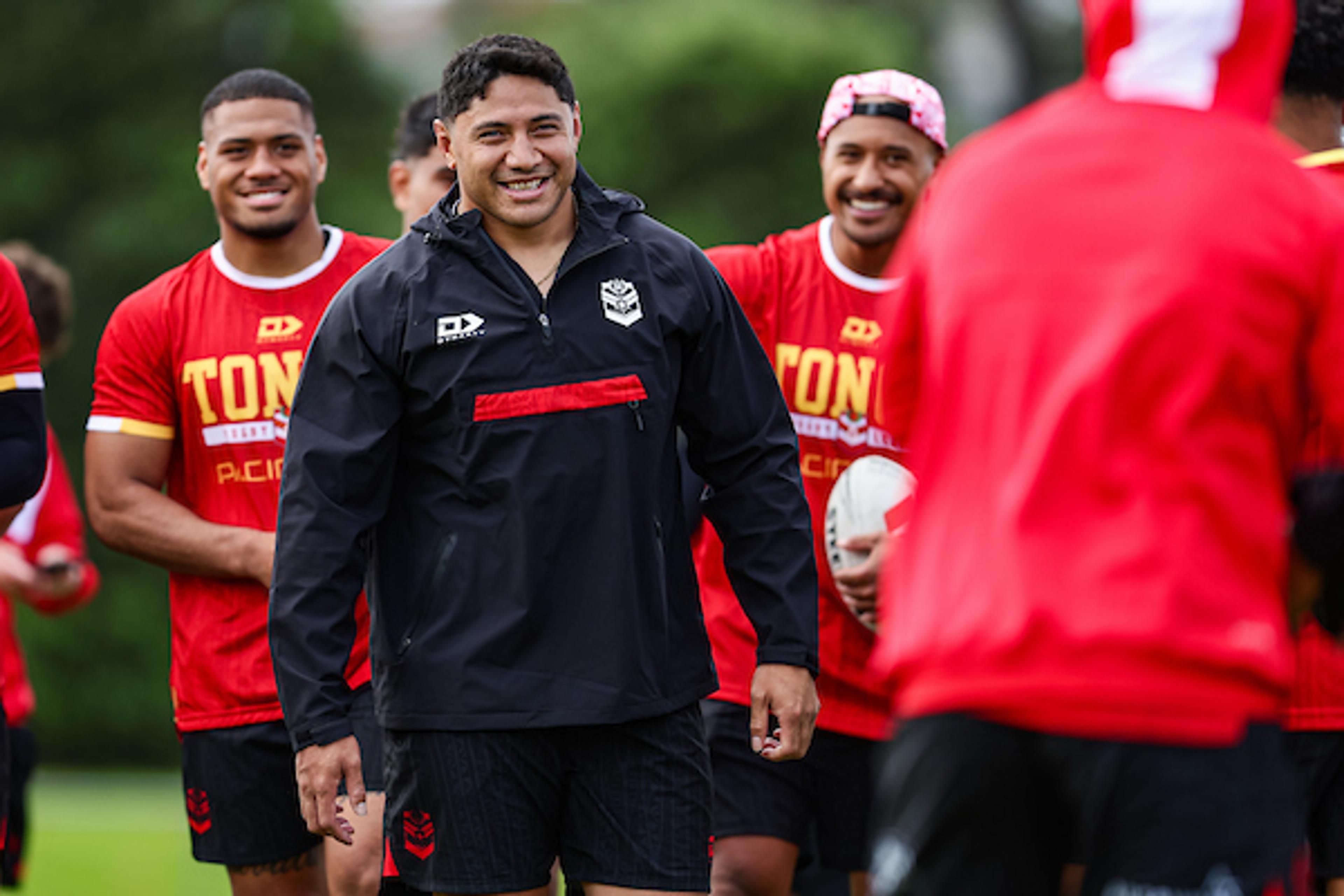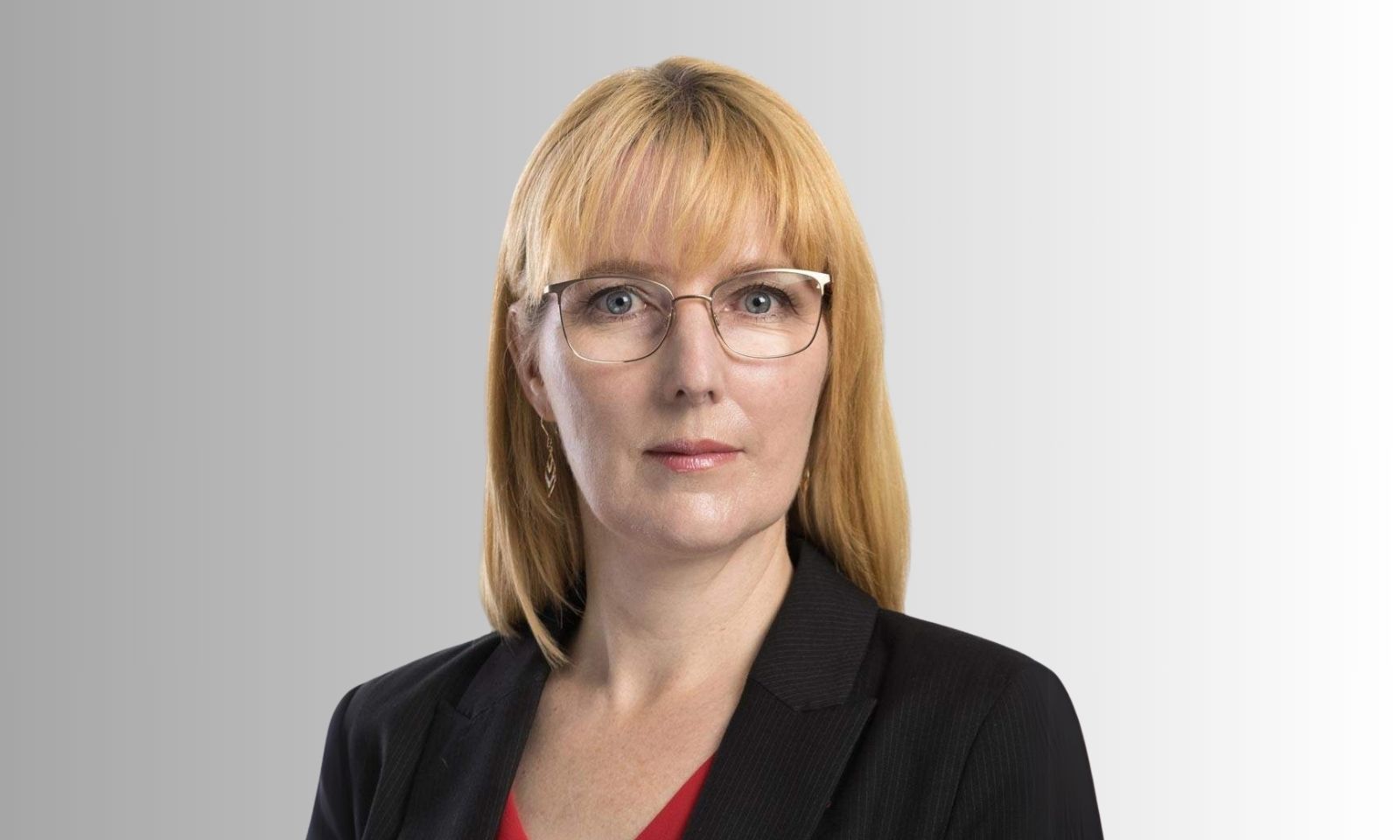

Denise Kingi-’Ulu’ave, Le Va chief executive, addresses those attending the opening of the Global Pacific Solutions 2025 conference in Auckland on Thursday.
Photo/PMN News/Candice Ama
Pacific leaders call for action against child abuse and trafficking at wellbeing summit
Participants at the Global Pacific Solutions 2025 conference urged Pacific communities to break their silence and confront critical issues impacting children across Aotearoa and the Pacific.



Sāmoan chef puts Auckland restaurant on the world map with win

The Oceania Football Confederation launches first professional league

Tonga vs Kiwis is more than a match - it's a cultural, tactical shift


Sāmoan chef puts Auckland restaurant on the world map with win

The Oceania Football Confederation launches first professional league
Advocates at the sold‑out Global Pacific Solutions 2025 (GPS) conference in Manukau on Thursday are urging Pacific communities to break their silence on child sexual abuse and trafficking.
The two‑day meeting, organised by Le Va at the Due Drop Events Centre, gathers Pacific and Māori practitioners, policymakers, and funders to collaboratively develop wellbeing solutions highlighting issues impacting Pacific and Māori people.
The event includes four impactful plenary panels and two blocks of breakout sessions covering various topics, including mental health and addiction, violence prevention, disability and public health, and suicide prevention.
Moeapulu Frances Tagaloa, Chief of Staff, Global Operations & Fund Capacity, and a survivor of state-care abuse, opened the first plenary panel titled “Nurturing our Children”, focusing on child sexual abuse and trafficking affecting Pacific and Indigenous children across Aotearoa and the Pacific.
The panel features Jane Searle Child Matters chief executive, Ida Malosi a Principal Youth Court Judge, ’Ofa Guttenbeil‑Likiliki Women and Children Crisis Centre Tonga director, Reverend Uesifili Unasa Le Va board member, and Tagaloa.
Tagaloa, who was recognised for her service to survivors of abuse in state and faith-based care, insists that survivors wait “too long” for apologies, compensation, counselling services, and a functional redress system.
“The government has not yet stood up an independent redress scheme as recommended by the [Royal] Commission. The Prime Minister promised it would be done by December this year,” Tagaloa says.
“Since we came forward are people listening? Are leaders listening? Boot camps - sound familiar? Tinkering with Te Tiriti.
“Destroying or preventing disclosure of care records. Paying pittance to survivors of abuse, paying pittance to survivors who are dying, not paying at all.”

Attendees filled the Sir Woolf Fisher Arena for the Global Pacific Solutions 2025 event, which sold twice as many tickets as its previous gathering. Photo/PMN News/Candice Ama
Seven realities across the Pacific
Guttenbeil‑Likiliki frames child sexual abuse and trafficking as issues that are neither new, foreign, nor solely “about individual monsters hiding in the shadows”.
Drawing on voices from across the Pacific, Guttenbeil-Likiliki shares stories that highlight seven ongoing realities for victims:
Systemic problems: A Sāmoan mother whose plea for justice after her daughter’s abuse was stifled by relatives and village elders demonstrates how communities “protect abusers and punish the truth”.
Cultural trafficking: In the Solomon Islands, a girl sent to live with relatives was coerced into “sex for food, for data, or protection”, with the arrangement normalised as customary fostering rather than trafficking.
Online vulnerability: A Fijian teenager who met a man through social media was lured by the promise of a phone and laptop, subsequently groomed and exploited.

Moeapulu Frances Tagaloa opens the first Plenary Panel of the day. Photo/PMN News/Candice Ama
Invisible vulnerability: A deaf Tongan girl endured years of abuse, with police and courts disbelieving her due to the lack of official sign language in Tonga. This highlights how disability intersects with poverty and gender, making vulnerable children invisible.
Silence as complicity: “It’s not just the offender. It is the school that did nothing, the church that moved the pastor, and the government that underfunded the helpline,” Guttenbeil-Likiliki says.
Outdated laws: She argues that colonial-era laws are insufficient to address 21st-century harms, demanding laws that define exploitation “online, offline, and inside institutions” and hold both systems and individuals accountable.
Institutional failures: Data must reveal institutional failures instead of simply tallying victims.Many in the Pacific are tired of traditional reports and advocate for metrics that examine how many times the system has failed victims and how many institutions maintained silence or shifted blame.

‘Ofa Guttenbeil-Likiliki reads the words of her sisters across the Pacific. Photo/PMN News/Candice Ama
NZ a ‘soft target’ for child abuse
Searle warns that child trafficking is growing in New Zealand despite the common belief that such issues do not happen here.
She cites feedback from a frontline organisation in Fiji, which labelled New Zealand a “soft target” for this crime.
Searle says while regions like Europe and Southeast Asia have systems in place to combat child trafficking, Aotearoa lacks similar structures.

From left to right, ‘Ofa Guttenbeil-Likiliki, Judge Ida Malosi, Moeapulu Frances Tagaloa, and Child Matters chief executive Jane Searle. Photo/PMN News/Candice Ama
“We have no idea how prevalent it is here, but we do know in surveys and research that it is throughout the Pacific, and that there are children in particular coming into New Zealand and then disappearing from the system.
“We don't know where they are, they could be in forced labour, they could be in sexual exploitation.
“So it is something we need to do research on, and it's something that we need to be very vigilant about.”

Child Matters chief executive Jane Searle. Photo/Le Va
Following the plenary, conference attendees participated in four concurrent sessions focussed on violence prevention, mental health, disability equity, and suicide prevention. They later came together for an afternoon discussion entitled “Moana Dreaming”, which explored future research initiatives in the Pacific.
On Friday, discussions will centre on mental health challenges linked to climate change and will highlight emerging Pacific change‑makers, maintaining the conference’s focus on collective action against systemic harms.
For more details on the full two-day schedule, click here.